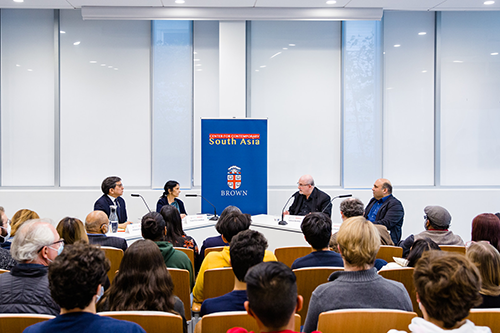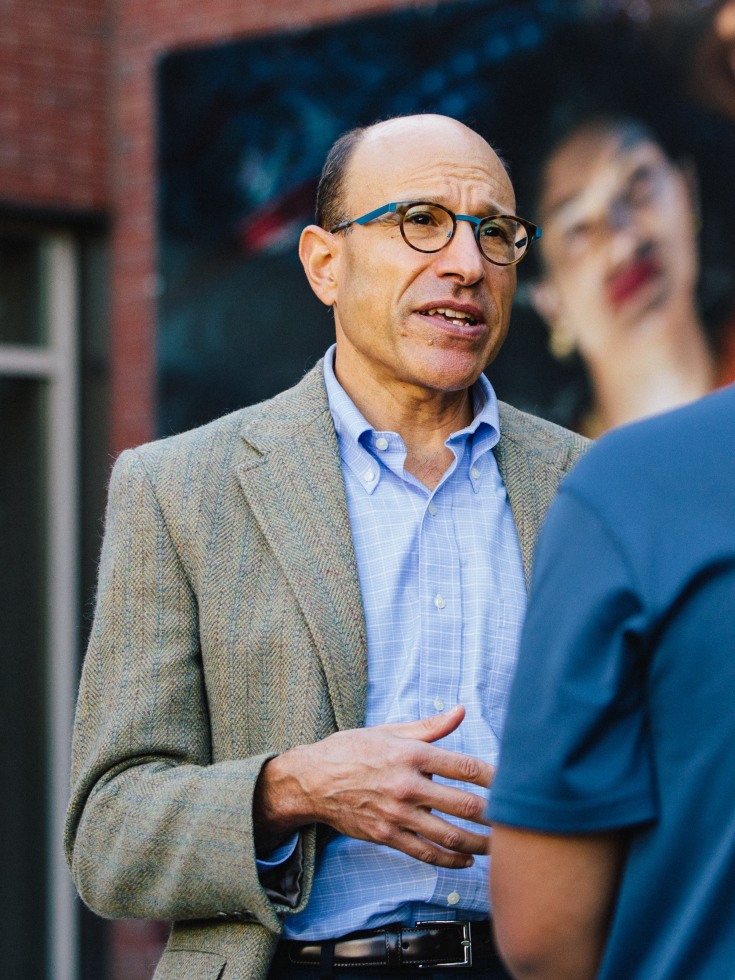PROVIDENCE, R.I. [Brown University] — With a $10 million gift from Parag and Usha Saxena, parents of three Brown University graduates, Brown will elevate and extend the global reach of its groundbreaking teaching and research on issues of modern South Asia.
In recognition of the generous support, the Corporation of Brown University approved the naming of the Saxena Center for Contemporary South Asia during its winter meeting in February.
Known to date as the Center for Contemporary South Asia, the Saxena Center, housed at Brown’s Watson Institute for International and Public Affairs, promotes interdisciplinary research, teaching and public engagement on key issues of India and the surrounding region. The gift will enable the center to expand its footprint in research, teaching, public policy and programming.
Ashutosh Varshney, a professor of international studies and political science who directs the center, notes that it currently has four areas of programmatic and research focus: democracy, urban development, pluralism and inequalities. The gift will make it possible to expand the center’s offerings, have more ambitious research plans, and send more students for research, language training and internships in South Asia, Varshney said; it will also open more residency opportunities for visiting scholars, policy makers, public figures and artists.

In particular, the gift will increase the number of undergraduate and graduate students the center sends to India and other parts of South Asia for research and internships, and Varshney hopes to add new institutional linkages to its existing partnerships — with the Centre for Policy Research and the National Council of Applied Economics Research, both in Delhi, and with the Janaagraha Centre for Citizenship and Democracy, in Bangalore.
In addition, the Saxena Center will deepen its relationship with Brown’s School of Public Health. SPH Dean Dr. Ashish Jha’s conviction that the problems of public health are not exclusively the domain of medicine, said Varshney, “made it easy to extend an intellectual arm for collaboration.” The Saxena Center and the school will work together to create academic programs at Brown and forge partnerships with Indian institutions.
Why South Asia?
The center’s origins date to 2011 and then-Brown President Ruth Simmons’ conviction that the international scope of a university like Brown should extend well beyond Europe to the Global South — including India and the rest of South Asia. At her invitation, Varshney created the India Initiative in 2012; with ongoing support since the arrival of President Christina H. Paxson in 2012, the initiative ultimately became the Center for Contemporary South Asia.
While anchored in the social sciences, the initiative-turned-center has embraced the humanities and arts from the start: “The humanities have so much to contribute to our social, cultural and even political understanding that not to include them would make us intellectually poorer,” Varshney said.
He noted that until recently, South Asia was the second-largest region in the world after East Asia. Since the early 1990s, India has been the second-fastest growing economy in the developing world after China and has by now become the fifth-largest economy in the world. In recent years, Bangladesh has made great strides in public health and education, and Pakistan is important geopolitically. He points to the formation of the Quad (the Quadrilateral Security Dialogue — an emerging partnership among Japan, Australia, India and the United States for the Indo-Pacific region) as a sign of the region’s importance to the current U.S. administration’s foreign policy.
“Simply put,” he said, “political, economic and cultural developments in India will have an impact that is not confined to India. South Asia is strategically and economically important, and is likely to continue to rise.”
